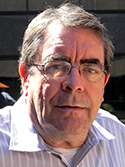No one walks alone in ABA affiliated councils
By David Hubbard

Among its many membership services and benefits, the American Bus Association (ABA) sponsors its affiliated councils focused on specific bus and coach operator groups.
Established in 1999, the Business Industry Safety Council (BISC) set the stage to define, clarify and elevate safety awareness in bus and coach operations.
ABA has since established three additional councils that plan, develop and implement education and networking opportunities. Each council invites the industry to know it, participate as members and offer it the support it needs.
Bus Maintenance and Repair Council
Chairman: Mike McDonal, Saucon Technologies, Bethlehem, PA
The Bus Maintenance and Repair Council (BusMARC) works to establish uniform best practices and regulatory compliance. It serves as a prime maintenance-related resource and encourages bus and coach operators to take a proactive stance in establishing maintenance standards of the highest level.
Hispanic Motorcoach Council
Chairman: Bill Torres, DC Trails, Washington D.C.
The Hispanic Motorcoach Council (HMC) — El Consejo Hispano de Autobúses — formed initially to serve predominately Spanish-speaking operators doing business in North America. Currently, 50 member-operators are working to grow its ranks. This group provides networking opportunities and ensures its members are kept abreast of all relevant legislative and regulatory processes with the tools they need to respond.
Women in Buses
Chairwoman: Kim Gryzswacz, CIT Signature Transportation, Ames, IA
The Women in Buses Council (WIB) launched in 2011 to recognize and focus on the work of the many women at work in the industry. It encourages their active joint participation in all matters of education, networking and mentoring.
For at least a hint of what these councils have done lately, I posed this question for the chairs:
What do you regard as your council’s crowning achievement thus far?
Mike McDonal, BusMARC: We are broadening the scope of our member operators and technicians through field trips to bus companies large and small in the area of BusMARC meetings to observe their maintenance operations. This year in Charlotte, NC, we saw how a company with 110 buses makes it work in a garage with only two bays.
The takeaway is our members gain a broader perspective for what they have not seen or realized within their own operations.
Bill Torres, HMC: I am most proud of the progress we have made in improving border crossings for coach operators. We have worked closely with Customs, Border Patrols. TSA and city officials to address the critical concerns facing operators and passengers stuck on a bus — sometimes for 15 hours without a break. We have helped them reroute some of the buses and come up with plans that are speeding up the process.
Some improvements include advanced passenger lists and a new facility in Laredo, TX, which will accommodate more people. Border agents are learning to pay more respect to motorcoaches rather than view them as one more car full of a lot more people.
Kim Gryzwacz, WIB: I can report our membership increased 21 percent in 2017, bringing our total membership to nearly 200 women with an active interest in our industry. Our growth confirms our desire to meet as a group to share thoughts and discuss issues that tend to be a bit more unique to women.
To that end we have established committees to focus on each business area — marketing, executive management, operations and maintenance, and most recently, tour and travel. There is strength in numbers and Women in Buses is paving the way, so no woman feels alone.
